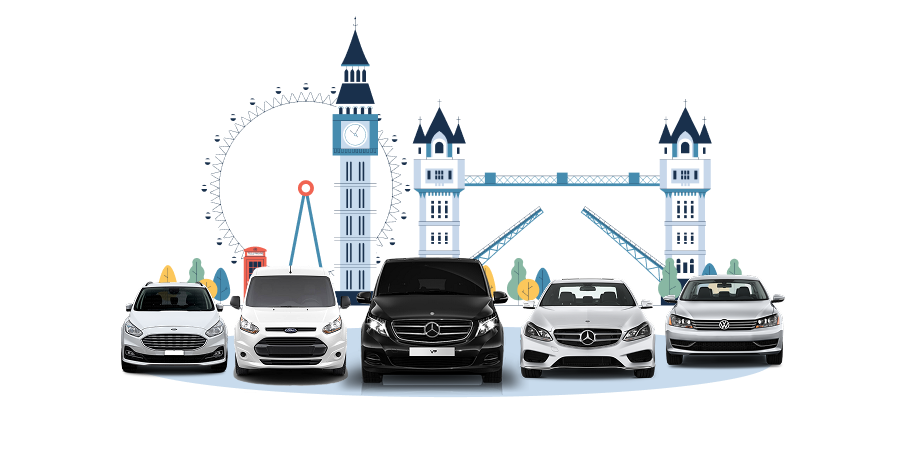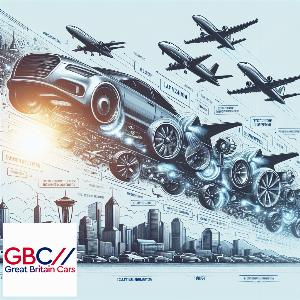Air Minicabs: Todays Reality and Tomorrows Vision
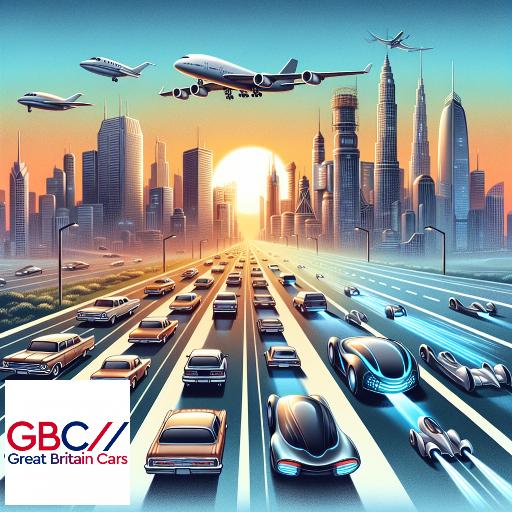
Current State of Air transfers
Air transfers, once a concept confined to science fiction, are now a reality, revolutionizing the way we perceive urban mobility. Today, companies like Uber, Volocopter, and Lilium are pioneering this space, developing electric vertical take-off and landing (eVTOL) aircrafts. These air transfers are designed to alleviate ground traffic congestion, promising faster, cleaner, and more efficient urban transportation. However, the current state of air transfers is still in its infancy. While several prototypes have been successfully tested, regulatory hurdles, safety concerns, and infrastructure requirements pose significant challenges. Looking ahead, the vision for air transfers is transformative. They are expected to become an integral part of smart city ecosystems, offering on-demand, point-to-point air travel. With advancements in autonomous technology, future air transfers could operate without a pilot, further increasing their efficiency and accessibility. In conclusion, while air transfers are no longer a distant dream, there is still a long journey ahead before they become a common mode of urban transportation.
Future of Air transfers
Air transfers, once a concept confined to the realm of science fiction, are now a reality and are set to revolutionize the future of urban mobility. Today, companies like Uber and Volocopter are pioneering the air transfer industry, developing electric vertical take-off and landing (eVTOL) aircraft that promise to alleviate ground traffic congestion and provide a faster, cleaner mode of transportation. The vision for tomorrow is even more exciting. With advancements in autonomous technology, future air transfers will not only be electric but also self-piloted, making air travel safer and more efficient. Moreover, the integration of air transfers into the existing transportation infrastructure will transform the urban landscape, with 'vertiports' replacing traditional transfer ranks. However, there are still challenges to overcome, including regulatory hurdles, public acceptance, and technological limitations. But with continuous innovation and investment, the future of air transfers looks promising, bringing us closer to a world where flying cars are not just a fantasy, but an everyday reality.
Air transfer Manufacturers
Air transfer Manufacturers are revolutionizing the transportation industry, turning the once futuristic concept of air transfers into today's reality. Companies like Joby Aviation, EHang, and Volocopter are leading the charge, developing innovative electric vertical take-off and landing (eVTOL) aircrafts. These air transfers are designed to provide quick, efficient, and eco-friendly transportation in urban areas, reducing traffic congestion and carbon emissions. Joby Aviation, a California-based company, has already conducted over 1,000 test flights with its five-seater eVTOL aircraft. Meanwhile, EHang from China has received approval for commercial use of its two-seater air transfer in several cities. German manufacturer Volocopter is also making strides with its VoloCity air transfer, aiming to launch services in Paris by 2024. These advancements are not just transforming the way we travel, but also paving the way for a more sustainable future. As technology continues to evolve, the vision of a sky filled with air transfers is becoming more tangible, promising a new era of urban mobility.
Air transfer Safety
Air transfer services, once a concept of the future, are now a reality. As they become more prevalent, safety is a paramount concern. Today's air transfers are subject to rigorous safety standards, similar to those of commercial airlines. They are equipped with advanced navigation systems, emergency parachutes, and are operated by highly trained pilots. However, as we move towards a future where autonomous air transfers are the norm, safety considerations will evolve. Tomorrow's vision includes air transfers that are not only self-flying but also integrated into a larger air traffic control system. This will require sophisticated AI technology and robust safety protocols to prevent mid-air collisions and other potential hazards. The future of air transfers is exciting, but it is crucial that safety remains at the forefront of this innovation. As the industry continues to grow, so too will the measures taken to ensure the safety of passengers and crew.
Air transfer Technology
Air transfer technology, once a concept of science fiction, is now a reality and is set to revolutionize the future of urban mobility. Today, companies like Uber and Volocopter are pioneering the development of electric vertical take-off and landing (eVTOL) aircraft, designed to operate as air transfers. These vehicles promise to alleviate traffic congestion, reduce travel times, and contribute to a more sustainable future by cutting carbon emissions. The vision for tomorrow is even more exciting. With advancements in autonomous technology, future air transfers could operate without a pilot, making them more efficient and accessible. Moreover, the integration of air transfers into smart city infrastructure could lead to a seamless, interconnected transportation system. Imagine a future where you can book an air transfer as easily as you hail a transfer today. While there are still challenges to overcome, including regulatory hurdles and public acceptance, the progress made in Air transfer technology is undeniable. The dream of flying transfers is closer to reality than ever before.
Air transfer Market
The Air transfer market is rapidly evolving, transforming from a futuristic concept into today's reality. This burgeoning industry is set to revolutionize urban mobility, offering a faster, cleaner, and more efficient mode of transportation. The market is driven by advancements in drone technology, electric propulsion, and automation, which are making it possible to develop vehicles capable of vertical take-off and landing (VTOL). Companies like Uber, Airbus, and Lilium are investing heavily in this sector, aiming to launch their air transfer services in the next few years. The potential for growth is immense, with Morgan Stanley predicting the market could be worth $1.5 trillion by 2040. However, there are still significant challenges to overcome, including regulatory hurdles, safety concerns, and public acceptance. Despite these obstacles, the vision for tomorrow is clear: a world where air transfers are a common part of our daily commute, reducing congestion and improving the quality of life in our cities.
Air transfer Piloting
Air transfer piloting is no longer a concept of the future, but a reality of today. With the advent of advanced technology and innovative aviation solutions, the concept of Air transfers is rapidly gaining momentum. These small, usually electric aircrafts are designed to carry a handful of passengers for short to medium distances, providing a quick and efficient mode of transport. The role of an Air transfer pilot is evolving with this new reality. They are required to have a deep understanding of the latest aviation technology, along with traditional piloting skills. The future vision for Air transfer piloting is even more exciting. With the development of autonomous flight technology, pilots may transition into roles as flight monitors or in-flight service managers, ensuring passenger safety and comfort. The reality of Air transfer piloting today and its vision for tomorrow is a testament to the rapid evolution of the aviation industry. It's an exciting time for pilots and passengers alike, as we move towards a future of efficient, eco-friendly, and convenient air travel.
Air transfer Services
Air transfer services, once a concept of science fiction, have now become a reality, revolutionizing the way we travel. These small aircrafts, designed to carry a handful of passengers, offer a personalized, efficient, and flexible mode of transportation. They are designed to bypass the hassles of traditional air travel, such as long queues, delays, and crowded airports. Today, companies like Uber and Volocopter are pioneering the air transfer industry, with prototypes already in testing stages. These air transfers are not only expected to reduce travel time significantly but also aim to be eco-friendly with zero-emission electric engines. The vision for tomorrow is even more exciting. With advancements in technology, we can expect fully autonomous air transfers, reducing the need for pilots and further increasing efficiency. The integration of AI will also allow for safer and more precise navigation. In conclusion, air transfer services are not just a reality today but also a promising solution for the future of urban mobility. They hold the potential to transform our cities and the way we commute, making travel faster, safer, and more convenient.
Air transfer Regulations
Air transfers, a revolutionary concept in urban mobility, are set to redefine the future of transportation. However, the reality of today's air transfer operations is heavily influenced by stringent regulations. These regulations, set by aviation authorities worldwide, are designed to ensure safety, efficiency, and environmental sustainability. They cover aspects such as aircraft certification, pilot licensing, operational rules, and air traffic management. The vision for tomorrow's air transfers is a seamless, safe, and efficient urban air mobility system. This vision, however, hinges on the evolution of air transfer regulations. Future regulations must accommodate the unique operational characteristics of air transfers, such as vertical take-off and landing, autonomous operation, and high-volume, low-altitude flights. They must also address emerging issues such as noise pollution, privacy concerns, and urban infrastructure integration. In conclusion, the success of air transfers in transforming urban mobility depends on a delicate balance between technological innovation and regulatory adaptation. As air transfer technology advances, so must the regulations that govern their operation.
Environmental Impact of Air transfers
Air transfers, once a concept of science fiction, are now a reality and hold a promising vision for tomorrow's transportation. However, their environmental impact is a subject of intense debate. On one hand, air transfers could significantly reduce traffic congestion, thereby decreasing the carbon emissions from traditional road vehicles. They are also expected to be electric, which would further minimize their carbon footprint. On the other hand, the energy required to power these transfers could put a strain on our already overburdened power grids. Additionally, the noise pollution from their rotors could disrupt local ecosystems. As we move towards a future where air transfers are commonplace, it is crucial that we address these environmental concerns. The development of more efficient, quieter rotors and renewable energy sources could help mitigate these impacts. The vision of tomorrow's air transfers is exciting, but it must be balanced with the responsibility of preserving our environment.
Our Latest Blog Posts
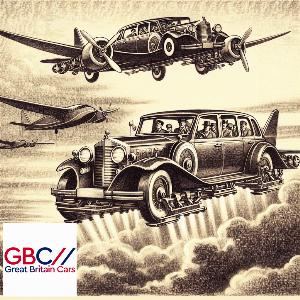
Air Minicabs: The Next Evolution in Air Travel
Blog about Air transfers: The Next Evolution in Air Travel

Luton to Scottish Borders: Serene Villages & Scenic Hills
Travel from Luton to the Scottish Borders and explore serene villages, scenic hills, and picturesque landscapes – Great Britain Cars
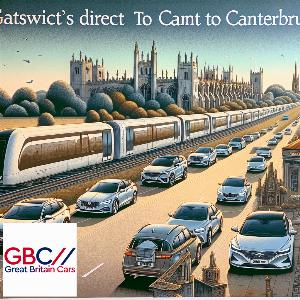
Gatwicks Direct Line to Canterburys Historical Wonders
Blog about Gatwicks Direct Line to Canterburys Historical Wonders
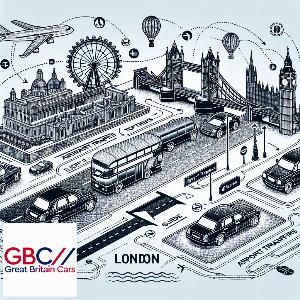
Navigating London: Top Tips for Airport Minicabs
Blog about Navigating London: Top Tips for Airport Transfers
Blogs Pages
London Airports: Potential Hubs for the Air Minicab Revolution
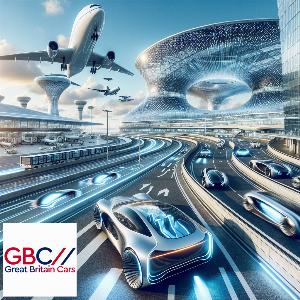
Blog about London Airports: Potential Hubs for the Air transfer Revolution...
Londons Airports to the Scottish Lowlands: A Journey Through Rolling Hills
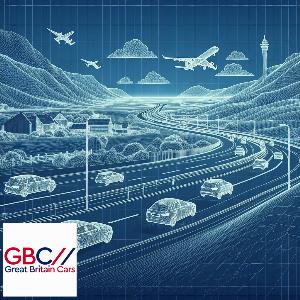
Blog about Londons Airports to the Scottish Lowlands: A Journey Through Rolling Hills...
The Charm of Londons Historic Pubs: A Minicab Guide

Blog about The Charm of Londons Historic Pubs: A transfer Guide...
Our Clients Testimonials

Amazing skill
Exceptionally proficient and trustful drivers they have . We will utilize this in the future.
Sarah





Chief drive administration
They are best in UK. They are giving chief drive administration.
Kevin





Key booking
Key booking and the driver was on time , careful and strong.
Moore





Best specialist co-op
They are best specialist co-op. They helped me a great deal in my manner.
William





Fair values
It has fair values, kind , polite ,conversational and very helpful driver and pleasant too.
Emma





Fair credits
It has fair credits, kind , wonderful ,conversational and unimaginably strong driver.
Baker





On time
Easy booking and the driver was on time , courteous and helpful.
Samuel





Cleanliness
The vehicle is generally around stayed aware of and cleaned . It was particularly fair.
Ryan





Dependable
The driver was so dependable and arrived at in legitimate time which was so great.
Grace





Upkeep
The vehicle is all around kept up with and cleaned . It was exceptionally fair.
Joshua





Extraordinary cab
Extraordinary cab and magnificent can support. Agreeable seats every single thing they are giving.
Nancy





Best servive
The vehicle is by and large around remained mindful of and cleaned . It was especially fair.
Perez





Best rates
They are also economically best as well. They have very reason able rates.
Mark





Great service
It is very great service and it's also reliable and on time always. I am really impressed by it.
Aana





Solid and kind
The driver was no question, areas of strength for solid kind .His way to deal with acting was simply awesome.
Wright





Astonishing ability
Skilful and trustful drivers. We will use this later on.
Evengly





Surprising assistance
It is astoundingly incredible assistance and it's likewise dependable and on time generally. I'm truly astonished by it.
Clark





Good pick ups
They pick me up on the exact time. They provide absolutely best.
Adams





Strong and kind
The driver was no doubt, solid areas for strong kind .His method for managing acting was absolutely great.
Harris





Extraordinary assistance
It is exceptionally incredible assistance and it's additionally dependable and on time generally. I'm truly dazzled by it.
Ethan




